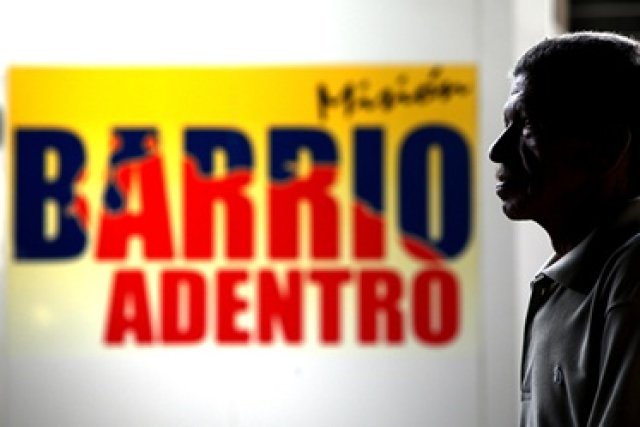
When the later president Hugo Chavez was first elected president in 1998, it began a process of change that has sought to expand the democratic and social rights of the poor majority who had previously been excluded. This process is known as the Bolivarian revolution.
It has included a new constitution guaranteeing previously unheard of social rights, re-nationalising the oil industry and promoting participatory democracy.
Below, the Venezuelan communications ministry lists some of the gains of this revolutionary process ― which has faced repeated attempts by a privileged minority, unable to win elections, to destroy it by other means.
* * *
• As part of the revolution, 64% of the income obtained by the government has been allocated for social investment.
• The Bolivarian government managed to cut poverty in the country from 28.9% in 1999 to 19.6% in 2013. Extreme poverty was reduced from 10.8% in 1999 to 5.5% in 2014.
• Venezuelans’ life expectancy and standard of living have improved. Also, Venezuelans have access to services and equal opportunities thanks to the reduction of social inequality from 54% in 1997 to 39% in 2012.
• The revolution offers free and quality education at all three levels of education. Today, 85% of Venezuelan children go to school.
• From 2009 to 2013, a total of 3,039,212 Canaimita laptops have been given to primary and high school students as part of their comprehensive learning process.
• In the revolution, higher education enrollment increased from 50,000 students in 1999 to 2.6 million students in 2014.
• Now, 97% of Venezuelans have access to clean drinking water.
• Before the Bolivarian revolution, there were 18 doctors per 10,000 inhabitants. Today, the figure is three times higher with 58 doctors per 10,000 inhabitants.
• The Bolivarian revolution reduced child mortality rate from 25.8 to 13.9 per 1000 children born.
• The Bolivarian revolution offers Venezuelans a worthy, free and quality health system. Under Chavez and President Nicolas Maduro, 7000 clinics have been built.
• Mission Barrio Adentro has saved the lives of more than 1.5 million people.
• Mission Miracle has healed the sight of more than 1.5 million people.
• Mission Smile has provided dental care to 250,000 people in 18 dental care centers throughout the country.
• The revolution has paid off the debt in the health field. Today, the state covers 100% of HIV-AIDS and other sexually transmitted infection treatments.
• The missions of elective surgery have benefited more than 8000 Venezuelans.
• Nearly 31 million medical tests have been carried out in 562 new Integral Diagnosis Centers (CDI).
• In Revolution, the problem of hunger and malnutrition was solved. 15 million Venezuelans have access to high-quality food at low prices. Today, 2.7% of Venezuelans suffer from malnutrition in comparison to almost 8% in 1999.
• Thanks to the Bolivarian Government, 94.6% of Venezuelans can currently afford three meals a day and consume 2285 calories per day. This represents almost 99% of the necessary calories.
• The Revolution provides Venezuelans with more jobs. The unemployment rate was reduced from 16% in 1999 to 5.6% in 2014.
• The Bolivarian government has paid off the debt with the country’s working class by raising wages every year. When the revolution came to power, the minimum wage was around US$16 a month. Today, minimum wage is $520, an amount that covers the food basic basket per month.
• With Chavez and Maduro, Venezuelans’ access to technology has grown. So far, the number of Internet subscribers has risen by more than 1000%, mobile telephone subscribers by 600%, and fixed telephone subscribers by 300%.
• Since the nationalisation of the CANTV telephone company in 2007, 3,242,374 million subscribers have joined this service, representing a 90.5% increase compared to the time when this company was privately owned.
• CANTV’s nationalisation has added more than 8.5 million mobile telephone subscribers. This represents a 98.3% rise.
• The people’s revolution has guaranteed economic security to the country. While the Western world succumbs to the capitalist crisis generated by the big powers, Venezuela has experienced annual growth of 2.7% since the Bolivarian government came to power.
• Through the different Latin American integration and cooperation mechanisms, our country endorsed more than 200 cooperation agreements with 23 countries in last year alone.
• In the revolution, the number benefiting from the pension was raised to 2.6 million pensioners. Pensions ewaual Venezuela’s minimum wage.